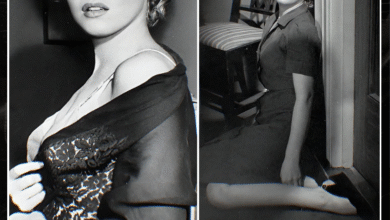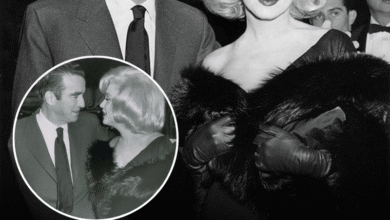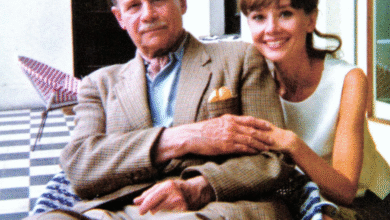Why Brad Pitt Calls This Heartbreaking Film His Favorite – The Tragic Journey of Jesse James and Bob Ford
OPINION: This article may contain commentary which reflects the author's opinion.
Brad Pitt’s favorite movie, The Assassination of Jesse James by the Coward Robert Ford, might not have been a box office success, but it holds a special place in his heart—a place defined not by commercial triumph but by profound emotional resonance. This film, where Pitt portrayed the infamous outlaw Jesse James, tells a story that is at once heartbreaking, tragic, and deeply human. Its emotional depth, far from the action-packed narratives of typical Westerns, explores the complexities of fame, betrayal, and the destructive consequences of our actions.
The film centers on Bob Ford (played by Casey Affleck), a young man who idolizes Jesse James, seeing him as a legendary figure worthy of admiration. However, as Ford becomes involved with the James Gang, his perception of Jesse shifts drastically. The violent reality of Jesse’s character, coupled with his dismissive attitude towards Bob, leads to a deep resentment. In a heartbreaking turn, Bob betrays Jesse, assassinating him in cold blood for a bounty, forever marking him as the man who killed a legend.
What makes this film stand out, beyond its historical accuracy and stunning performances, is its emotional weight. The aftermath of Jesse’s death is filled with tragic consequences. Bob, once a fan, is now an outcast. The Ford brothers attempt to capitalize on their infamy by reenacting the murder for audiences, but they are met with hostility, as people continue to revere Jesse as a hero and call Bob a coward. This cruel twist of fate unfolds as Bob grapples with his actions, the guilt eating away at him, leading to the tragic suicide of his brother Charley and Bob’s eventual death at the hands of a man seeking justice.
For Brad Pitt, the emotional core of the film—the journey from admiration to betrayal, from fame to infamy—resonates deeply. It’s a story of psychological unraveling, a portrayal of how one decision can alter the course of an entire life. Pitt, known for his ability to delve into complex characters, finds this narrative “heartwarming” not in the traditional sense of the word, but in its ability to evoke a powerful emotional response. It’s a film that moves beyond the superficial and dives deep into the human experience—the regret, the sorrow, and the quest for redemption that shapes the characters’ fates.
Pitt’s appreciation for the film lies in its artistic integrity, its willingness to explore the darker and more complex facets of human nature. While The Assassination of Jesse James may not have been the commercial success that other films in Pitt’s career have enjoyed, its emotional and artistic merit make it a standout in his body of work. It reminds us that, sometimes, the most heartwarming stories are not those that leave us with a sense of joy, but those that move us with their raw, unflinching portrayal of life’s hardest truths.
For Brad Pitt, this film serves as a reminder that true worth is found not in box office numbers, but in the ability of a story to resonate with the heart, to make us reflect on the complexity of human choices, and to leave an indelible mark on the soul. It’s a testament to the power of cinema to evoke empathy, to make us understand, and perhaps, to help us find a little bit of redemption in the process.


